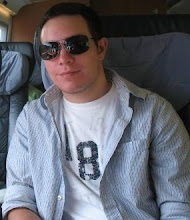In the video, three people involved with the health care reform bill of the Clinton administration discuss whether President Obama can succeed with the reform where Clinton had failed. These three analysts included Donna Shalala, Harold Ickes, and Kenneth Thorpe, President Clinton’s Health and Human Services Secretary, Deputy Chief of Staff, and Health Care Reform Bill contributor (respectively). Since all were previously involved on the same side with the Health Care issue, they each obviously still support the Obama administration’s initiative to promote the health care reform.
Donna Shalala adds a lot of details to back up her arguments, whether over why today’s climate is different from that of fifteen years ago or about the public option aspect of the bill. While most of her answers are based on logic and evidence, after she answers the designated question she tends to also reveal her more personal opinion; in her final question about the public option, she seems to speak personally when stating that something must be done to hold the insurance industry accountable for their actions. Thorpe is obviously the one most informed about the previous bill, as he was a part of its creation. This may be why he also seems the one most objectionable and logical about the issue. He gives specific examples about the desired cause of the bill, as well as why it is able to possibly be successful this time around. Ickes mostly gives more general statements about the issues of the bill (with terms about “substance” and the “politics” of getting the bill passed) without much specification. At the interview’s end, he begins to vaguely discuss key elements to drive forth health care but does not detail any of it or what exactly he feels the bill may need (though he admits it needs something).
While each pundit brings out good points about the possibility of today’s health care reform bill, the debate is a one-sided affair as the audience does not receive any other point-of-view since the pundits do not have to defend their opinions. Thus, the audience hears only whether the bill can pass, rather than any opinions on whether it should pass.
Donna Shalala adds a lot of details to back up her arguments, whether over why today’s climate is different from that of fifteen years ago or about the public option aspect of the bill. While most of her answers are based on logic and evidence, after she answers the designated question she tends to also reveal her more personal opinion; in her final question about the public option, she seems to speak personally when stating that something must be done to hold the insurance industry accountable for their actions. Thorpe is obviously the one most informed about the previous bill, as he was a part of its creation. This may be why he also seems the one most objectionable and logical about the issue. He gives specific examples about the desired cause of the bill, as well as why it is able to possibly be successful this time around. Ickes mostly gives more general statements about the issues of the bill (with terms about “substance” and the “politics” of getting the bill passed) without much specification. At the interview’s end, he begins to vaguely discuss key elements to drive forth health care but does not detail any of it or what exactly he feels the bill may need (though he admits it needs something).
While each pundit brings out good points about the possibility of today’s health care reform bill, the debate is a one-sided affair as the audience does not receive any other point-of-view since the pundits do not have to defend their opinions. Thus, the audience hears only whether the bill can pass, rather than any opinions on whether it should pass.

No comments:
Post a Comment